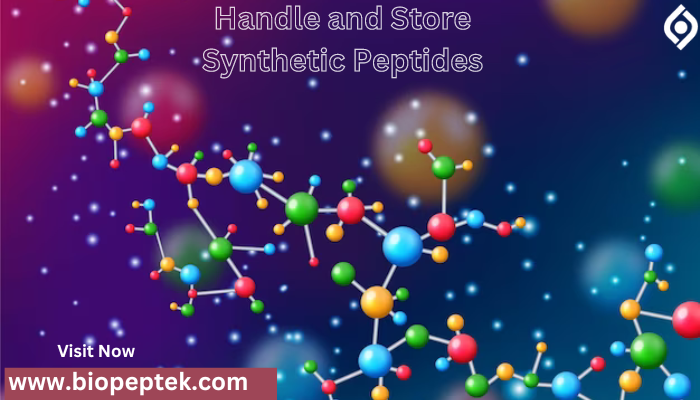Synthetic peptides play a pivotal role in various scientific and medical fields, from research to therapeutic applications. Proper handling and storage of these peptides are crucial to maintain their integrity and effectiveness. In this article, we will delve into the intricacies of handling and storing synthetic peptides, exploring the best practices, common mistakes to avoid, and the impact of neglecting proper protocols.
Synthetic peptides are artificially created chains of amino acids, designed for specific applications in research, medicine, or industry.
The efficacy of synthetic peptides depends heavily on how they are handled and stored. Improper practices can lead to degradation, contamination, and ultimately, compromised results.

Synthetic peptides are sensitive to environmental conditions such as temperature, humidity, and light. Deviations can lead to structural changes and loss of functionality.
Contamination poses a significant threat to synthetic peptides. Proper handling ensures aseptic conditions, preventing unwanted impurities.
Adhering to correct handling procedures guarantees the longevity of synthetic peptides, preserving their efficacy for intended applications.
Maintaining strict personal hygiene, including handwashing and the use of appropriate protective gear, is essential to prevent contamination.
Wearing lab coats, gloves, and other designated attire minimises the risk of introducing external elements to the peptides.
Utilising laboratory equipment according to prescribed guidelines ensures accuracy and minimises the chance of errors.
Implementing measures to prevent cross-contamination between different peptides is vital for maintaining the purity of each sample.